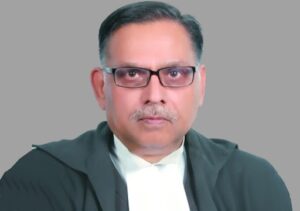Justice Indira Banerjee, who is current Sitting Judge of Supreme court of India and had been elevated from Madras High Court, in which the honorable justice served as a Chief Justice till 2018. This article will focus on honorable justice’s profile and a few of her judgments in recent past years.
Early Life:
Justice Indira Banerjee was born on 24th September 1957 in the state of West Bengal. She had passed her Indian School certificate examination that is her schooling from Loreto House in Calcutta. Later, after her schooling, she completed her graduation with honors in History from Presidency College, which was then affiliated with Calcutta University. Her Bachelor’s degree in Law came from the College of Law, Calcutta University. She enrolled as an Advocate on July 5th, in the year 1985. This covers the early life from her schooling till enrolling herself as an Advocate in 1985.
From Lawyer to Supreme Court Judge:
Honorable Justice started her practicing both in the original as well as in the Appellate sides in the Calcutta High Court. Her branch of law practice was there in all areas except in Criminal law. She also appeared before the Supreme Court of India and other courts, including the tribunals. While practicing as an advocate, she was elevated as a permanent Judge of Calcutta High Court in the year 2002. She was also part of the Calcutta High court Services committee, where she served as the chairperson for almost four years. She was officiated as the executive chairperson at the West Bengal State Legal Services Authority for almost a year or so until the time she was officially transferred as a Judge of Delhi High Court.
In July 2013, she was also nominated by the then Chief Justice of India for a specified period of weeklong training in the area of Judicial Administration at the Civil Services College in Singapore. Later she served as an appointed judge of Delhi High court on 8th August, in the year 2016. After that, she served as a chairperson of the Delhi State Legal Services Authority, before she was being appointed as the Chief Justice of Madras High Court on 5th April, in the year 2017.
Later in the year 2018, she was elevated to the Supreme Court of India as a Judge, where she is currently holding her position as a sitting judge and as per the reports, her due date to retire from her judicial service is on 24th September, in the year 2022.
Significant Cases:
Under this section, there are few significant judgments of Justice Indra Banerjee that have been recapitulated.
Firstly, in Pramod Suryabhan Pawar v. State of Maharashtra (2019), Justice Indra Banerjee along with Justice DY Chandrachud observed that the consent relating to section 375 involve an active understanding of the specified circumstances, also the actions and consequences of the act. It is to say that, an individual makes the consent after looking into all the alternative actions and also the possible outcome and consequences of any action that he does. They stated that when such an action is absent, that is, the absence of consent, then in such case offense of rape occurs. Also, they held that consent has not been defined under section 90 of IPC and any consent given under misconception of facts would never fall under the purview of Consent under the eyes of the law. Thus, they held that in the case of a woman engaging in sexual relations on false promise to marriage, her “consent” is based on “misconception of fact”, and such sexual act(s) will amount to rape.
In Sarvepalli Ramaiah v. District Collector, Chittor (2019), honorable Justice along with Justice Banumati held that Ryotwari Patta as part of land ownership shall not be provided to a land that has been declared as a water body and the same gives the power or vests with the government with no encumbrances under section 2A of Andhra Pradesh Imams (abolition and conversion into Ryotwari) act of 1956. Justice Banerjee concurred with her colleague and stated that a decision may be set aside on the ground of illegality, but the same shall be done when there is an apparent error in the face of the decision. Reiterating her opinion
“A decision may sometimes be set aside and quashed under Article 226 on the ground of illegality. This is when there is an apparent error of law on the face of the decision, which goes to the root of the decision and/or in other words an apparent error, but for which the decision would have been otherwise”.
In the State of Punjab v. Davinder Singh case, Justice observed that the concept of reservation cannot be ignored and the same was not also contemplated all the time by the framers of the constitution. The ignorance of such would be a violation and great denial of the right to equality where unequal is treated equals. This can be considered as a significant case that also reflected the idea of the Supreme Court in the cases which came up later in the same lines and to effectuate reservation but not at all times.
Conclusion:
Recently in the news reported, Justice Indira Banerjee was said to have withdrawn herself from the hearing of a post-poll West Bengal violence case in which few BJP state workers were alleged to have committed murders. Justice Banerjee, as per the reports, told that she doesn’t want to hear such a case. It denotes that she was from Bengal and has rescued herself from this case. As justice Indira Banerjee has withdrawn from this case, it was later transferred to a bench comprising Justice Vineet and Justice Dinesh Maheswari. It is to be noted that Calcutta High court also hearing this particular case on different PILs before it.









